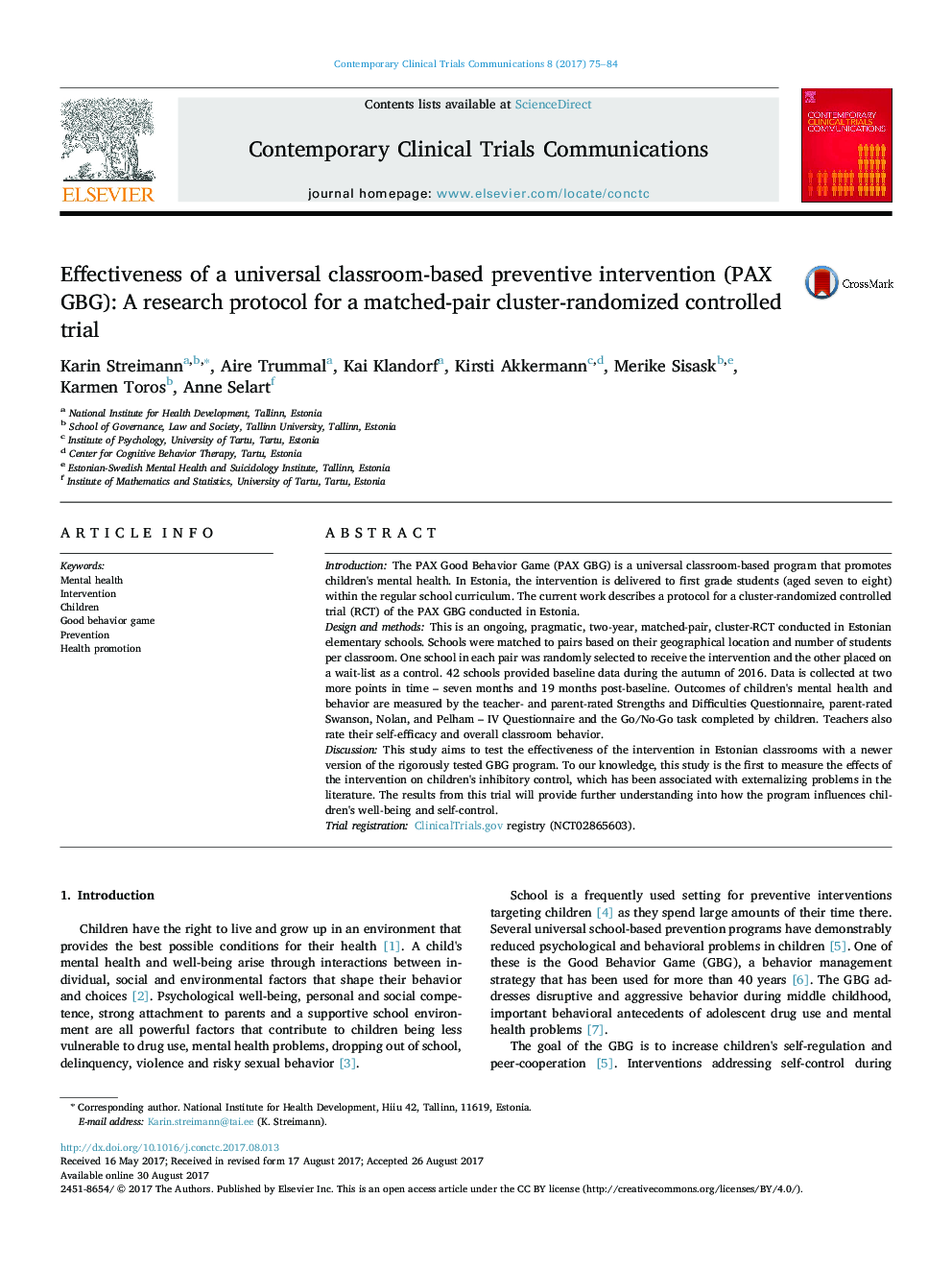| Article ID | Journal | Published Year | Pages | File Type |
|---|---|---|---|---|
| 5549622 | Contemporary Clinical Trials Communications | 2017 | 10 Pages |
IntroductionThe PAX Good Behavior Game (PAX GBG) is a universal classroom-based program that promotes children's mental health. In Estonia, the intervention is delivered to first grade students (aged seven to eight) within the regular school curriculum. The current work describes a protocol for a cluster-randomized controlled trial (RCT) of the PAX GBG conducted in Estonia.Design and methodsThis is an ongoing, pragmatic, two-year, matched-pair, cluster-RCT conducted in Estonian elementary schools. Schools were matched to pairs based on their geographical location and number of students per classroom. One school in each pair was randomly selected to receive the intervention and the other placed on a wait-list as a control. 42 schools provided baseline data during the autumn of 2016. Data is collected at two more points in time - seven months and 19 months post-baseline. Outcomes of children's mental health and behavior are measured by the teacher- and parent-rated Strengths and Difficulties Questionnaire, parent-rated Swanson, Nolan, and Pelham - IV Questionnaire and the Go/No-Go task completed by children. Teachers also rate their self-efficacy and overall classroom behavior.DiscussionThis study aims to test the effectiveness of the intervention in Estonian classrooms with a newer version of the rigorously tested GBG program. To our knowledge, this study is the first to measure the effects of the intervention on children's inhibitory control, which has been associated with externalizing problems in the literature. The results from this trial will provide further understanding into how the program influences children's well-being and self-control.Trial registrationClinicalTrials.gov registry (NCT02865603).
